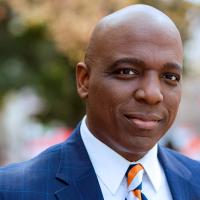100 Years Later: Remembering the Tulsa Massacre, One of America's Darkest Moments
ABOVE: Dr. Eric Costanzo, lead pastor of South Tulsa Baptist Church, appeared on the Tuesday edition of CBN News' Faith Nation to talk more about the 100-year-anniversary of the tragic event. Faith Nation is seen weekdays on the CBN News Channel.
Today marks a somber anniversary and a stain on American history. It was 100 years ago that hundreds of Black people were killed and blocks of buildings were burned to the ground when a mob of angry White people attacked the Greenwood section of Tulsa, Oklahoma.
It has become known as the Tulsa Race Massacre.
Back in 1921, Greenwood was known as the Black Wall Street. Though segregated by law, it was an affluent area with thriving Black businesses, churches, and homes. The massacre wiped just about all of that out and no one was ever held accountable.
Viola Fletcher, one of three known Tulsa Race Massacre survivors, testified on Capitol Hill recently about living through the nightmare.
"I will never forget the violence of the White mob when we left our home," Fletcher said. "I still see Black men being shot, Black bodies lying in the street. I still smell smoke and see fire. I still see Black businesses burned, with airplanes flying overhead. I hear the screams. I live through the massacre every day."
*** Please sign up for CBN Newsletters and download the CBN News app to ensure you keep receiving the latest news from a distinctly Christian perspective.***
Fletcher is 107-years-old but was just seven years old when she and her family fled their Greenwood home. Her brother, 100-year-old Hughes Van Ellis also testified. The world War 2 veteran became emotional.
"I was there when it happened, I'm still here," Ellis said. "My sister was there when it happened, she's still here."
It happened in the overnight hours of May 31 and June 1. The event, sparked by a 19-year-old black man allegedly assaulting a white teenage girl on an elevator, ended with the destruction of nearly 40 square blocks.
A mob of 5,000-10,000 took out 200 black businesses and killed nearly 300 residents, leaving an estimated 10,000 homeless. No one was ever charged.
President Biden went to Tulsa on Tuesday to underscore the importance of those lives.
A candlelight vigil and the dedication of a prayer wall there commemorates the anniversary as well.
Meanwhile, after hearing survivors' testimonies, lawmakers on Capitol Hill are considering what legal actions can be taken to perhaps compensate survivors and their families.
Congressman Hank Johnson has introduced a bill that would make it easier for them to seek reparations instead of falling victim to a statute of limitation restrictions. It's making its way through Congress right now.
"I'm asking that my country acknowledge what has happened to me," Fletcher said.
"We are not asking for a handout, all we're asking for is a chance to be treated like a first-class citizen," Ellis remarked.
In addition to the bill being introduced to Congress, the three known living survivors of the Tulsa Race Massacre are lead plaintiffs in a reparations lawsuit filed last year against the city of Tulsa and the State of Oklahoma.
According to records, some members of the mob were actually deputized by law enforcement before participating in the massacre.





